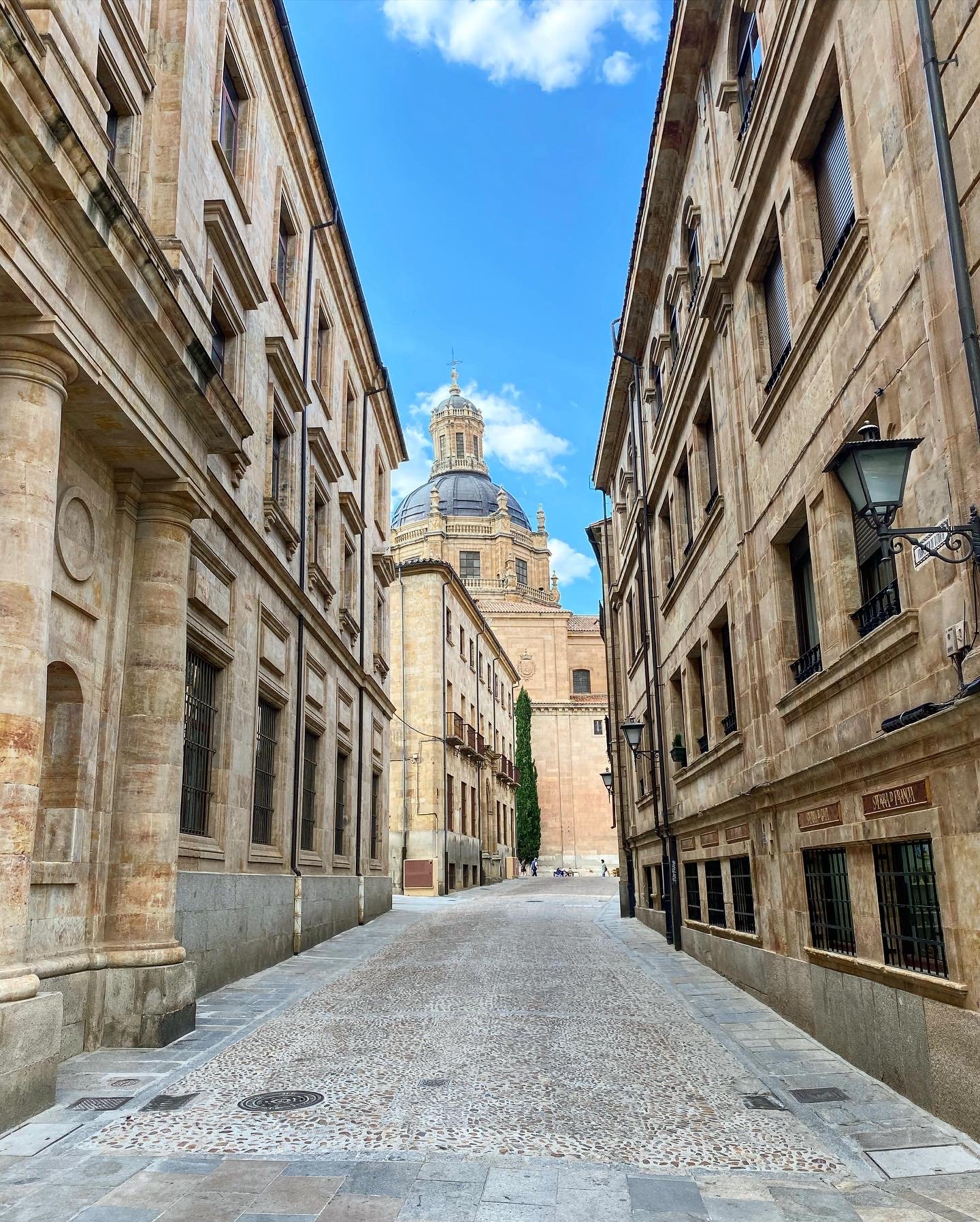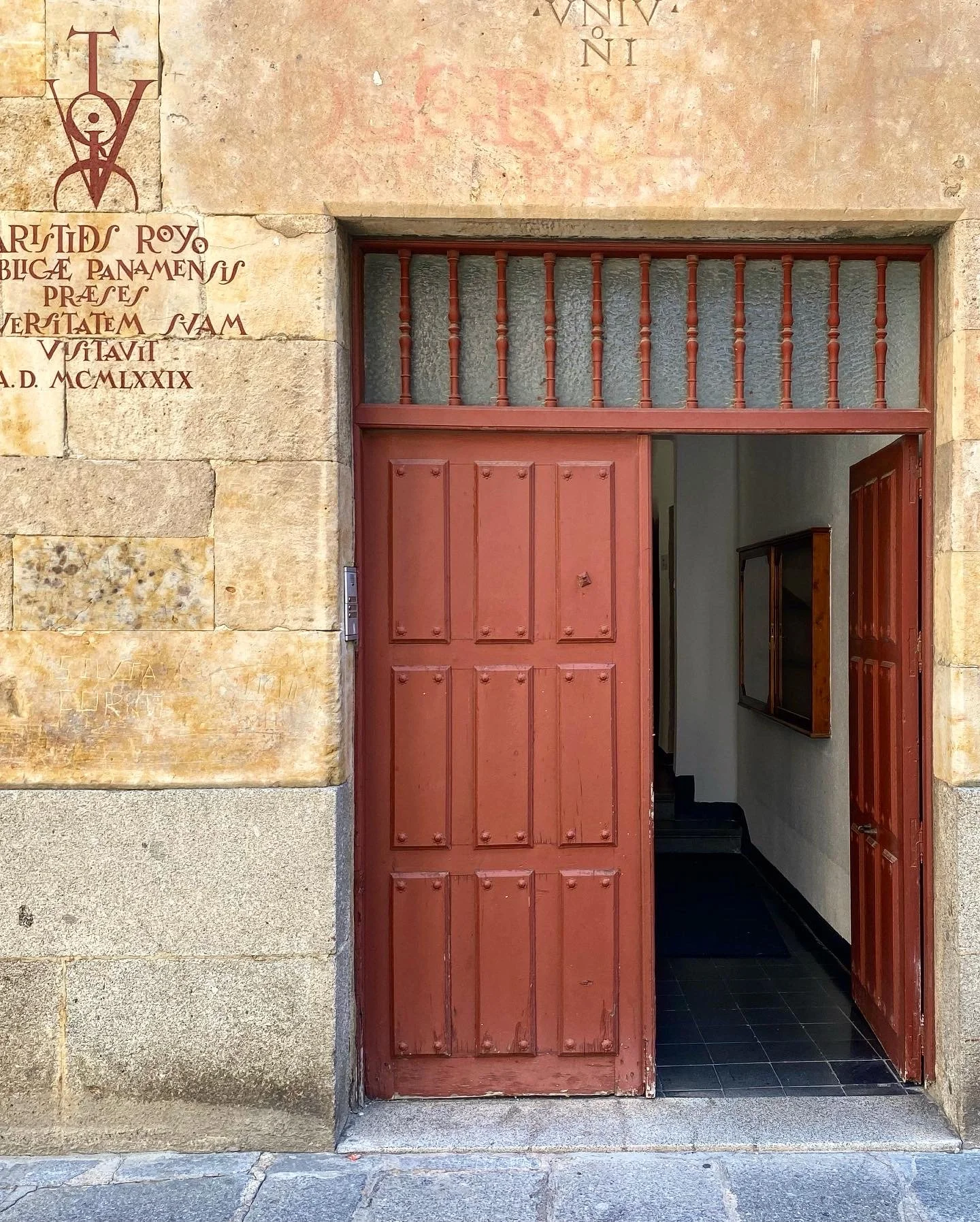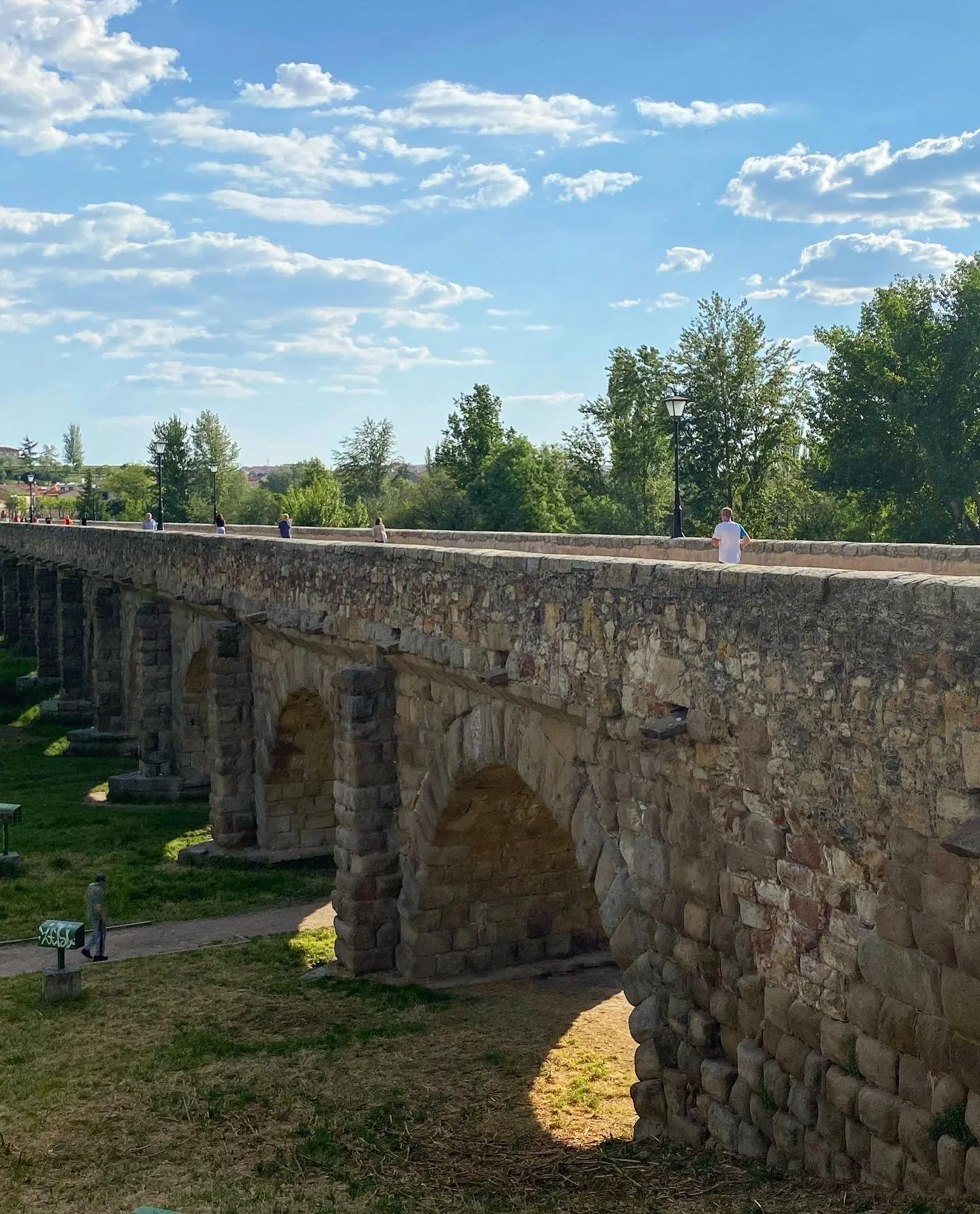A Preserved 300 Year-Old Skyline in Salamanca
I FELT A BIT LIKE AN ARCHAEOLOGIST EXPLORING SALAMANCA
As my bus was getting closer to Salamanca, I knew I was in for a treat. From a distance, I could see a city of beautiful sand-colored buildings where the tallest were majestic cathedrals. I imagine that, 300 years ago, when that skyline was created, it was remarkable for its height and grandeur. Even today, it’s still magnificent; but what hung to me was the wonder of the city’s historic life.
Salamanca is home to the oldest university in Spain and was historically a major center for education and culture in the country. That importance and historic role feel well-preserved as you walk through the city; a bit like Coimbra, the city feel timeless, and it was easy to imagine life 300 years prior. It felt like a blend of an archaeological site and a vibrant city.
While I loved the city, I think a single day is enough to explore everything that you need to see. It’s a good trip from Madrid, or a stop-point between Portugal and Southern Spain.
And if you’re a vegan for me, Salamanca has a really cool vegan dive bar El Rastrel. As soon as I walked in, I knew Salamanca had placed a hook in me for life.
WANDER THROUGH THE STREETS OF THE UNIVERSITY DISTRICT
The streets of the university center feel like there’s a 600-year old HOA making sure the history stays intact; all the buildings have the same aesthetic - beautiful sand color, many with bright red doors, and most of the signs are hand-painted on the walls with red paint. Whether the coordination is voluntary or enforced by some secretive council of locals upholding medieval aesthetic rules, the effect is marvelous. Walking through the streets feels like walking through history, and from most places you get a partial view of the cathedrals. The effect is consistently breathtaking.
If you tire of the desert feel and yearn for some greenery, Huerta de Calistoga y Melibea is a free garden with beautiful views up to the cathedral. Unless you yearn for some shopping, I recommend staying within the historic center; as you leave, the city quickly loses its charm and feels like any other modern small city.
STOP AT THE CITY’S MANY HISTORIC SITES
As you walk through the city center, you won’t be able to help but to stumble into the city’s many architectural gems. There are several that are common stop points in particular, though:
Salamanca Cathedral (New Cathedral) and the Old Cathedral - These are the buildings that most define the skyline, and are worth the €6 entry fee. Inside and outside, they are both stunning.
Convento de San Estaban - A beautiful covenant near the cathedrals
Palacio de la Salina - The city’s palace. It has a guided tour of the interior, but I only stopped to look at the outside
Plaza Mayor - A traditional European plaza
Casa de las Conchas - A historic building that was repurposed into one of the coolest public libraries I’ve been to
La Clercecia - A baroque church that also makes up the skyline; you can go to the top of the tower for a panoramic view of the city.
Monterrey’s Palace - A good example of Spanish Renaissance architecture
Roman Bridge - A well preserved piece of history from when Salamanca was part of the Roman Empire
While I recommend walking through the university, I don’t recommend paying the €10 entry fee into the old campus building. It was fairly unremarkable on the inside.








